
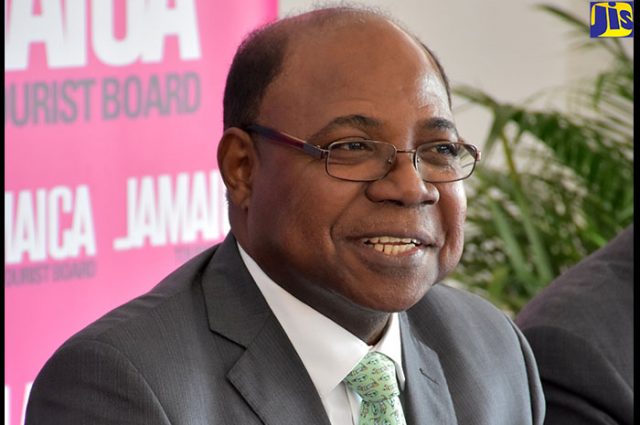
Bartlett to Promote Jamaica at World Tourism Day Celebrations in Qatar
KINGSTON, Jamaica; September 26, 2017: Hon. Edmund Bartlett departed the island yesterday (September 25, 2017) to participate in the official celebration of World Tourism Day being hosted in Doha, Qatar, on September 27, 2017.
The invitation was extended by the United Nations World Tourism Organization (UNWTO) and the Qatar Tourism Authority, which also asked the Minister to participate in a high-level think tank focusing on: Tourism as a Means for Enhancing Cultural Preservation and Mutual Understanding.
“It is quite an honour for Jamaica to have been invited to participate in the official celebration for World Tourism Day (WTD) 2017. I am excited to use this prestigious platform to highlight all the wonderful things we are doing to leverage our tourism product to benefit the people of Jamaica. Naturally, I will also promote our upcoming UNWTO, Government of Jamaica and World Bank Group Global Conference on Jobs and Inclusive Growth: Partnerships for Sustainable Tourism’, which is scheduled for November of this year,” explained the Minister.
The Minister will share the stage with over 20 other influential speakers from across the globe during the event, which will be held at the Sheraton Grand Doha Resort & Convention Hotel.
The impressive line-up includes Secretary-General of the World Tourism Organization (UNWTO) Taleb Rifai; State Secretary of the Ministry of Tourism in Croatia, Frano Matušić; Director of the UNESCO Office in Doha, Anna Paolini; and Minister of Information, Culture and Tourism of Liberia, Eugene Lenn Nagbe. He think tank will be moderated by CNN International’s anchor Max Foster.
During his visit, which was fully paid for by the UNWTO and the Qatar Tourism Authority, the Minister will also have a special meeting with the country’s Prime Minister, His Excellency Sheikh Abdullah bin Nasser bin Khalifa Al Thani.
He will then travel to London to attend the second staging of Jamaica Travel Market (JTM), which is being hosted by the Jamaica Tourist Board (JTB) on September 29 and 30. While there, he will meet with tour operators in the UK to share the many new tourism offerings and developments happening locally.
Jamaica Travel Market is a business-to-business tradeshow which is a platform for British, Irish and Nordic tour operators to meet with authentic Jamaican suppliers directly. It includes a day and a half of business appointments, destination updates and ends with a grand Gala Awards Dinner.
Minister Bartlett is scheduled to return to the island on October 1, 2017.

UN General Assembly: A good week to fight sexual exploitation of children
This has been another good week in moving forward on the Recommendations of Global Study on the Sexual Exploitation of Children in Travel and Tourism.
These are the words by Dorothy Rozga Executive Director Ecpat International.
A number of the sections of the Study raise concern about the sexual exploitation of children by UN peacekeepers and other UN personnel. In response, one of the Study’s Recommendations calls “for the UN General Assembly to ensure implementation of the recommendations and to strengthen the UN’s response to sexual exploitation and abuse by United Nations Personnel in the areas of prevention, enforcement, and remedial action….”
An important step was taken in this direction earlier this week when senior officials from fifty-seven countries joined UN Secretary-General Antonio Guterres in a meeting on the sidelines of the UN General Assembly to discuss efforts to end sexual exploitation and abuse in peacekeeping missions around the world. Guterres announced new measures to tackle the problem, including a mandate for investigators to examine allegations within seventy-two hours of a report, bans on alcohol and fraternization for troops, the appointment of the first-ever UN rights advocate for victims, and the establishment of a new accountability mechanism. Seventy-five countries signed or pledged to sign a compact outlining these steps toward curbing the tide of sexual violence.
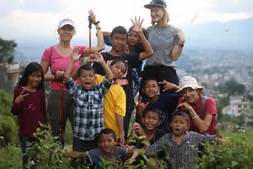
Tourism crimes! Volunteering and visiting Orphanages when traveling
It’s human trafficking, child abuse and a crime participants often don’t even know they are part of it.
It happens in Myanmar, Nepal and other countries. An Australian adventure travel company has a strong stance on child protection and has just announced a new charitable partnership with Australia-based child protection charity Forget Me Not. This reinforces the company’s commitment to end orphanage tourism and help reunite thousands of children with their families. The new partnership is kickstarted with an A$90,000 donation, made through The Intrepid Foundation.
The company removed visits to orphanages from all itineraries by May 2016 and has been working with child protection experts to educate travellers about the reality and implications of supporting overseas orphanages for a number of years. Intrepid is now playing a leading role as part of an advocacy group that is calling for the introduction of a Modern Slavery Act in Australia.
There are 16,886 children living in orphanages in Nepal, yet 80% have at least one parent who could care for them. Many are taken from their home with the promise of a better life, only to be mistreated and abused.
Australian-based charity, Forget Me Not carries out life-changing rescue, recovery and reintegration work, educating rural communities and parents about the dangers of child trafficking and reuniting children with their families in Nepal.
“We believe every child deserves to grow up in a safe and supportive environment. In partnership with organisations like Forget Me Not and Rethink Orphanages, we are actively lobbying the Government to make Australia the first country in the world to declare visits to overseas orphanages as illegal,” James Thornton, CEO of the Intrepid Group explained.
“We are urging Australian travellers and the industry to end orphanage visits and volunteering overseas. Travellers often think they are helping, but children are not a tourist attraction. The best way to help is by supporting organisations that work to keep children with their families – that’s why we have partnered with Forget Me Not,” James Thornton declared.
The $90,000 donation comes from the Namaste Nepal appeal – launched by The Intrepid Foundation following the devastating 2015 Earthquake. The appeal raised over $750,000 in total and is already helping to rebuild a school, provide skills training for women, support a health post near Everest Basecamp and rebuild the heavily damaged Langtang Trekking route in Nepal.
“With the generous support from The Intrepid Foundation, Forget Me Not will be able to assist with the rescue, rehabilitation and family reunions of children who have been trafficked into orphanages for the purpose of profit,” said Andrea Nave CEO Forget Me Not, Australia.
“Together we made it our collective fight to free children and to get them where they belong – back with families, in their villages and in their mountains.” Anju Pun, FMN Country Director, Nepal.
Established by the founders of the Intrepid Group in 2002, The Intrepid Foundation provides travellers with a way to give back to the communities they visit. The not-for-profit organisation has raised over $5.6 million and supports more than 100 community-based projects and initiatives in areas of healthcare, education, gender equality, human rights, child welfare, sustainable development, environmental conservation and wildlife protection.
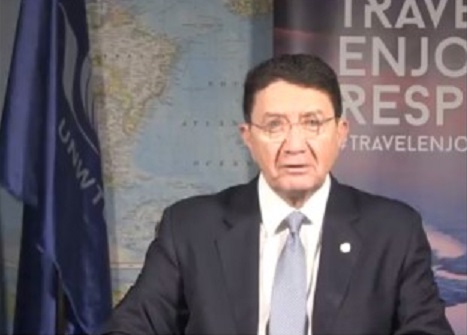
UNWTO Secretary General endorses Hostelling International USA’s Sleep for Peace
United Nations World Tourism Organization (UNWTO) Secretary General Taleb Rafai has released a video endorsing Sleep for Peace, an annual celebration of the peace-building benefits of travel hosted by Hostelling International USA. Sleep for Peace is held the week of September 21 to coincide with the United Nations’ International Day of Peace, and this year HI USA hostels around the country will host a variety of events and activities aimed at creating a more peaceful world through travel.
In the video, Rafai talks about tourism as the world’s first global peace industry, and how travel can help achieve the UN’s Sustainable Development Goals for 2017. “My dear friends, every traveler holds the potential to build peace in this light, and to celebrate the International Day of Peace…. The UNWTO is supporting, very strongly, the Sleep for Peace initiative, which Hostelling International has promoted since 2013,” Rafai said during his message.
Each year, more than 50 HI USA hostels host thousands of travelers from all over the world, bringing them together in conversation and friendship and facilitating new perspectives on global issues and world cultures. During Sleep for Peace week, hostel activities highlight this year-round mission that’s critically important in the current global climate.
Examples of 2017 Sleep for Peace events include:
HI New York City: One of the many activities during the week is a facilitated dialogue with visitors from North and South Korea, who will teach visitors how to make bibimbap and discuss its cultural relevance.
HI San Francisco Fisherman’s Wharf: The hostel will be hosting an interactive art event where guests are invited to participate in making peace flags and screen documentary film “Before the Flood”, featuring UN Messenger of Peace Leonardo DiCaprio.
HI Boston: Non-profit organizations around Boston will gather at the hostel for a Peace Panel discussion moderated by President and CEO of World Boston.
HI Point Reyes: The coastside hostel will be hosting Yoga for Peace on the beach and a Solace Meditative Music hour, where participants will share in chants, hymns, and songs from various spiritual traditions.
“HI USA is proud to have this program, which not only highlights the work we strive to do on a daily basis, but also fits in with the UNWTO’s goals to build a better future for people around the world,” said HI USA CEO Russ Hedge.
“Our hostels have always aimed to spark conversations among diverse travelers and help build friendships across borders, and we are excited to help this message reach a global audience.”
In addition to the special programming, HI USA hostels will also be shining blue lights in honor of the international color of peace.

UNWTO deeply saddened by the devastating earthquake in Mexico
The World Tourism Organization expresses its heartfelt condolences to the families and friends of all those affected by the earthquake in Mexico.
“Today the whole tourism community is with Mexico and its people. We stand ready to support Mexico and its people in this difficult moment” said UNWTO Secretary-General Taleb Rifai.
“A top world tourism destination, Mexico City, will surely continue to welcome all of us as always” added Rifai.
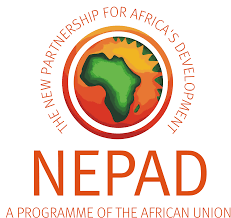
Sustainable tourism development in Africa: UN General Assembly discusses issue
The technical body of the African Union known as NEPAD is active at the ongoing UN General Assembly in New York.
In 2016, 1235 million international tourists traveled around the world. Travel and tourism represent nine percent of the world’s Gross Domestic Product (GDP) and one out of every 11 jobs.
Africa’s aviation industry alone supports 6.9-million jobs and contributes $80bn to GDP on the continent. Tourism has the potential to achieve the African Union Agenda 2063 and the Sustainable Development Goals (SDGs) if well managed, given its linkages with other sectors of the economy.
In the 2030 UN Agenda for Sustainable Development along with the 17 SDG’s, three goals (8, 12 and 14) are directly linked to tourism, including economic growth; job creation, environmental preservation and effective resource management; the promotion and protection of cultural values and heritage. In addition, as tourism is a cross-cutting industry, it has the potential to contribute directly and indirectly to all the goals.
Africa remains one of the fastest-growing regions for the travel and tourism sector globally and in 2016 international tourist arrivals grew by 8% with a total of 58 million international tourists. In 2016, Africa and South –East Asia are the leading tourist destinations; experienced about 8% growth rate, according to the UN World Tourism Organization (UNWTO) report of 2017.
Despite the progress made in the tourism industry, most African countries have yet to reach their full potential. Myriad challenges face the tourism sector: the urbanization of the continent is faster than anywhere else in the world and by 2025 half of the African population will live in cities. The issue of urbanization will bring serious challenges of integrated waste management, transport and pollution, which will impact touristic activities. Additionally, slow visa facilitation; low investment levels; the capacity gap in the hospitality service industry; poor connectivity and infrastructure are major impediments to tourism growth and sustainability.
The NEPAD Agency’s contribution to sustainable tourism in Africa is guided by the NEPAD Tourism Action Plan (TAP). TAP is the continental framework for the implementation of sustainable tourism in Africa. It also supports the domestication of the Sustainable Development Goals (SDGs) and AU 2063 Agenda. At the margins of the 72nd United Nations General Assembly, the NEPAD Agency and partners are organizing a High-Level Forum entitled “Sustainable tourism development in Africa: a transforming opportunity for inclusive growth”.
This High Level forum will be part of the Global Tourism Week, in celebration of the International Year of Sustainable Tourism for Development, 2017.
It will focus on information sharing on how best to contribute to the implementation of the Sustainable Development Goals 8 (to promote sustained, inclusive and sustainable economic growth, full and productive employment and decent work for all).
It also provides opportunity to engage, discuss and exchange the experiences from various players and stakeholders on how issues of policies and investments can create opportunities for job creation, employment and sustainable tourism in Africa.
Expected panelists and participants The Side Event will bring together a cross section of high profile leaders, champions and practitioners from both public and private institutions across the globe. Side Event Structure and Outline The Side Event on September 21 will be a high profile panel session and interactive moderated plenary discussions for two hours.
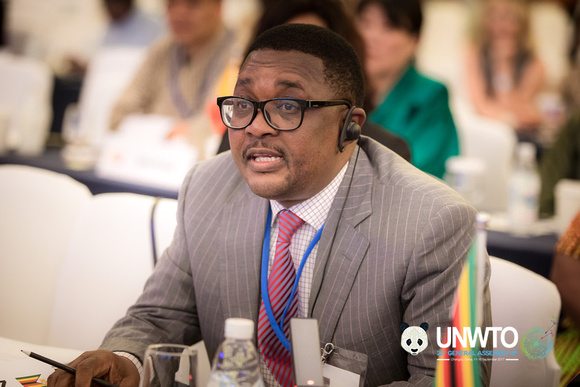
Transcript: Walter Mzembi address to the UNWTO General Assembly
Minister of Tourism and Hospitality for Zimbabwe Dr. Walter Mzembi addressed the General Assembly of the World Tourism Organization (UNWTO) in Chengdu, China on Wednesday.
This is a transcript of his presentation:
Excellencies, Colleague Ministers, Ladies, and Gentlemen
– Let me Congratulate the People’s Republic of China on its grand hosteship of the 22nd GA of the UNWTO and excellent service and hospitality rendered to our delegations, and of course, it’s assumption of the Presidency of the 22nd session.
-I know the painstaking and elaborate work and resources invested in such projects, having been host myself for the 20th Session for which I thank you for your support then.
– Let me proceed to note the inauguration of the World Tourism Alliance last night, an inevitable happening gave your scale and projected leadership as an international source market and unparalleled network of alliances. It’s only natural that you would enter this space of nongovernmental and business organization of global tourism, perhaps overdue. We pray the long-term objectives are to complement gaps identified especially in global funding and tourism development clearly missing in our current UNWTO. I hope this will strengthen UNWTO going forward and not duplicate what it is already doing or what other organisations are ceased with already as some of your founding articles may seem to suggest.
– And still on this subject I would also plead for inclusivity, especially of the emerging economies , there is nothing global of course without Africa , if you miss Africa you have missed the world, or at least it’s 1.2 Billion people market, and I hope you can hastily include those missing at the very beginning in your structures to inspire confidence and improve the global appeal of the organisation
-Zimbabwe is captured in the New York Times of the January 2015 edition as “a once avoided destination, now a must visit destination ”
– Rated at no 13, together with Rwanda at no 14 as Africa ‘s top attractions in the Conté Naste Magazine, top 17 destinations for 2017, this country which hosts and shares the majestic Victoria Falls with Zambia, is one of the Natural Wonders of the World. Our chief hospitality product is peace , safety and security .
– Zimbabwe makes the claim to a 33 year tourist safety record, with not a single tourist life lost to conflict or war nor insecurity since 1983!
– Today Zimbabwe is a $1billion tourist economy set to grow to a $3 billion economy by year 2020, employs over 300000 people directly and indirectly .
– The Country shares seven tranfrontier conservation boundary areas developed to the scale of the ecosystem, with neighbours , South Africa, Mozambique, Zambia, Botswana , Namibia, and Angola , and has sound biodiversity policies which host a flourishing wildlife population and a diverse flora in its ecosystems.
– Beyond its traditional markets in Europe Zimbabwe has developed strong bilateral relations with other parts of the world and has a BRICS growth strategy anchored by China whom it has granted a visa on arrival dispensation . Zimbabwe is largely an open destination with most countries in the world enjoying this visa on arrival preference.
– How does one access Zimbabwe from China??. You can be connected from OR Tambo , Johannesburg or Cape Town to any destination in Zimbabwe, Harare, and VF included in just over an hour, 15 flights a day.
– or via Dubai, a direct flight of 8 hours to Harare or VF
– The World Climate Agency at some stage rated Zimbabwe as host of the best climate on the globe, No natural Disasters except incessant droughts now mitigated by irrigation development. Google Zimbabwe at your own leisure to understand why Zimbabwe has been such a resilient product notwithstanding the adversity it suffered at some stage. We are the most endowed country in mineral wealth. As a colonial state, we were founded by the Rudd Concession because of the attraction of our rich natural resources and fertile soils. Ask the Chinese here they will confirm how they turned our adversity into an opportunity for themselves. Don’t be left out in this modern day Eldorado to my country.
– Turning Global
1)We reaffirm our thrust on finding a sustainable solution to securing peace for Tourism and it’s facilitation by the Security Cluster, and urge the Secretariat to facilitate more relevant engagements and interfaces for this sector to make its case. Continuing to meet alone and reciting our challenges will not resolve this challenge.
2) We urge practical operationalisation of the SDGs, As an example Africa will need 660 billion euro a year to operationalise the SDGs, for the next coming years until 2030 , in order to create 20million jobs a year to deal with illegal migration into Europe and other parts of the world , yet our ODA support is just 60billion Euro a year. How do we cover this gap? We have the biodiversity product, people , poor people, who are your greatest prospect and asset to a future source market if we develop a middle class out of them, turn them into tourists not migrants. A generation ago there was no tourist from China, no-one wanted to receive you, today we outdo each other to receive you, with some countries giving you up to 10 year multiple entry visas, totally inconceivable a few years ago, WHY, because out of your poor, emerged a middle class of 400million people, out of which 128m today constitute the world ‘s largest source market. 4 billion trips are done internally, serious economic kinetics at play. To keep our people engaged at home we, therefore, need to discuss serious investment in the tourism sector in Africa and other developing economies to help in the elimination of joblessness, in itself a threat to security, because idle minds concoct terrorism, we have to give youthful lives a meaning to mitigate this major challenge .
So lip service to resolutions on SDGs that does not translate into practical solutions will make us irrelevant in Cabinet tables where we seek accommodation. Let’s demonstrate Tourism’s greater relevance going forward.
Finally, I want to thank you for the honor to champion reform and modernization with regards to elective issues around the SG post. It is this post that gathers us every two years in this manner, to listen principally to this person who administers the organisation between elective congresses and keeps us relevant to the world, even the best of white papers executed by an inappropriate choice, our collective choice can become for lack of a better expression a black paper. So this is going to be the best decision of the 106th EC, notwithstanding the acrimony that gave birth to it yesterday, and a lasting legacy of the outgoing SG, I wish it had come sooner though. I pushed it not out of self-interest, NO, but because it was the best thing to do for our organization, someone had to carry the Cross and burden, because that is what leadership is all about. I opted to champion and magnify the cause because I admire the good work Taleb has done in the last decade. I know it because I have been around long enough, almost a decade nearly matching your service as SG. Genuine friendship is built on honest feedback, no matter how nasty it may appear to those who may be unable to comprehend issues at the time. Equally, China can claim some credit too, being a world case study and Champion of Reform itself , so we have no choice in this regard than to embrace change. In conclusion no one appreciates Taleb more than Zimbabwe for standing by my country at its worst and bringing the GA to Zimbabwe , the rest is history . His name is indelibly captured in the memories of our people. I thank you , and God bless you all.
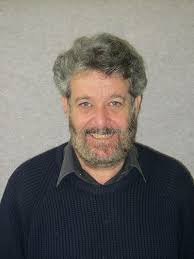
The leadership of the UNWTO and the WTTC and why it matters
Known as a risk and crisis management expert, former head of Israel Tourism in Australia, Dr David Beirman Ph.D joined the recent debate on the recently concluded UNWTO General Assembly and wrote:
In recent months there has been considerable debate in some sections of the travel industry media about the upcoming appointment of a successor to the UN World Tourism Organization’s Secretary General, Dr Taleb Rifai. Between 11-16 September, at the UNWTO’s General assembly meeting in Chengdu, China, the next UNWTO Secretary-General will be nominated and a vote will be held requiring a two third’s majority. I make no personal judgement about the nominee Mr Zurab Pololikashvili. I have never met him and know little about him apart from the fact that he has considerable political and foreign affairs experience. When he served Georgia’s Minister for economic development (2009-10), tourism to Georgia grew on his watch.
However, there is no doubt that his nomination has aroused controversy. His direct involvement with the global tourism industry is limited compared to Dr Rifai and his nomination has attracted outspoken critics and supporters. However, the concern that every tourism industry professional should have is that the leaders of tourism’s two major global bodies, the UN World Tourism Organisation and the World Travel and Tourism Council are people who are widely recognised and respected as industry leaders.
Over the past few years the UNWTO has benefited from the wise and diplomatic leadership of Taleb Rifai, a former and well respected tourism Minister of Jordan. This was counterbalanced by the enlightened leadership of David Scowsill who was a widely respected CEO of the World Travel and Tourism Council. Rifai and Scowsill established an alliance between their respective global organisations which greatly strengthened the global advocacy of the global tourism industry over the past 8 years. An alliance between the political and the business wings of global tourism is vital for tourism to attract political support around the world.
The replacement of the WTTC’s former CEO David Scowsill by Ms Gloria Guevara Manzo has been widely welcomed. Ms Guevara was a former tourism minister of Mexico and has an extensive background in airlines and GDS companies. She has long been a prominent figure in world tourism. Her appointment maintains the WTTC’s commitment to professional leadership. The question that the global tourism industry needs to address is whether Mr Pololikashvili will be able to maintain the very high standards of the UNWTO’s tourism leadership set by Taleb Rifat and maintain the alliance with the WTTC.
Since Mr Pololikashvili secures the position of UNWTO Secretary general it will be vital for all members of the UNWTO and the wider global tourism industry to unite and support him. The global tourism industry cannot afford the fragmentation which weakened its global leadership in the past. It will also be important for other global tourism organizations, especially the WTTC to express their willingness to maintain the alliance between the world’s key tourism bodies which has served global tourism so well over the past few years. The global tourism industry has a number of shared common challenges including security, sustainability. a commitment to ethical business practices and the sharing of technological expertise. These are most effectively addressed when the key global tourism associations are working together.
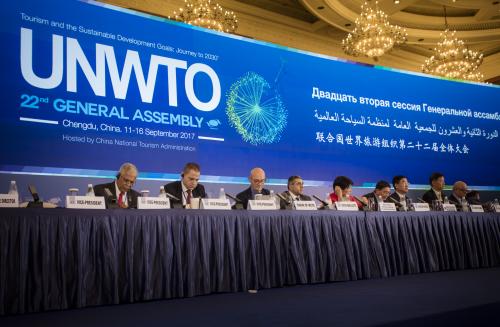
22nd UNWTO General Assembly in China: a week of important achievements
The approval of the Chengdu Declaration on Tourism and the Sustainable Development Goals, the adoption of the Framework Convention on Tourism Ethics and the appointment by consensus of Zurab Pololikashvili as Secretary-General for 2018-2021 were only some of the achievements of the 22nd session of the General Assembly of the World Tourism Organization (UNWTO), held in Chengdu, China last week.
An intense week of meetings, decisions and agreements marked the 22nd session of the UNWTO General Assembly in Chengdu, China on 13-16 September. The biennial event convened more than 1300 participants from Member States and Affiliate Members of UNWTO representing over 130 countries.
“Chengdu will always remain in UNWTO history as host of the Assembly that approved the Organization’s first international convention – the Framework Convention on Tourism Ethics,” said UNWTO Secretary-General Taleb Rifai.
The Convention of Tourism Ethics converts the Global Code of Ethics into a binding document to advance the ethical components of tourism. The document covers the responsibilities of all stakeholders in the development of sustainable tourism, providing a framework that recommends an ethical and sustainable modus operandi including the right to tourism, freedom of movement for tourists and the rights of employees and professionals. A major milestone of the 22nd UNWTO General Assembly was the approval of two key documents: the Chengdu Declaration on Tourism and the SDGs and the Framework Convention on Tourism Ethics.
“In an interconnected world where the business volume of tourism equals or even surpasses that of oil exports, food products or automobiles, it is important to set out a legal framework to ensure that growth is dealt with responsibly and that it can be sustained over time. Tourism is a power that must be harnessed for the benefit of all,” said Chairman of the World Committee on Tourism Ethics (WCTE) Pascal Lamy.
“The approval of the Convention is a strong legacy of the International Year of Sustainable Tourism for Development that we celebrate this year” UNWTO Secretary-General Taleb Rifai “This is an historic moment for UNWTO”, said Rifai. “The approval of the Convention is a strong legacy of the International Year of Sustainable Tourism for Development that we celebrate this year. It is also a strong sign that countries are committed to make tourism a force for a better future for all. It reinforces UNWTO’s institutional outreach in the UN system,” he added.
Another important milestone was the approval of the Chengdu Declaration on Tourism and the Sustainable Development Goals. The document underlines the potential of the tourism sector in economic, social and environmental terms, and includes 21 articles that, among others, recommend to governments “to develop an integrated and holistic approach to tourism policy in order to leverage the sector’s positive impact on planet and prosperity (Article 1).” In addition, it proposes “to undertake national assessments on tourism’s contribution and commitment to the SDGs and ensure the inclusion of tourism in interministerial SDG commissions and/or working groups, as well as to enhance the contribution of tourism in SDGs national strategies through the set-up of institutional frameworks and mechanisms that allow participation of all stakeholders”.
A united tourism community
Unity and cohesion were expressed throughout the 22nd UNWTO General Assembly. One of the largest displays of these sentiments was in a special meeting organized to discuss how to support those destinations affected by Hurricane Irma and the earthquake in the southern coast of Mexico.
The meeting identified three lines of action: (i) supporting the recovery of the affected destinations through the private sector and aid agencies, with special attention given to SMEs due to their lack of means to rebuild and recover; (ii) sharing experiences on resilience and crisis management and (iii) developing strong and coordinated communication.
The group of countries attending the special meeting also agreed to propose that the General Assembly adopt a special resolution expressing solidarity and support to the affected destinations and calling for the support of the international community.
The General Assembly also appointed the Secretary-General for the period 2018-2022. Zurab Pololikashvili, current Ambassador of Georgia to Spain, Morocco, Algeria and Andorra, was proposed by the UNWTO Executive Council last May and appointed by consensus by all Member States convened at the 22nd General Assembly.
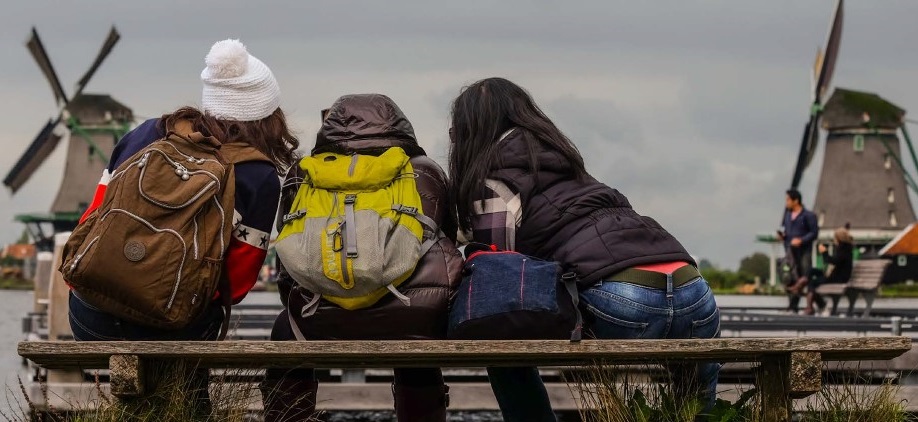
UNWTO and StudentMarketing join forces to underline relevance of student travel
Travel for study reasons is one of the segments that have resulted from the profound diversification of the tourism sector in the last years. With the aim of enforcing the uniqueness of this segment, the World Tourism Organization and StudentMarketing have signed a Memorandum of Understanding (MoU) agreement in the framework of the 22nd session of the UNWTO General Assembly.
According to StudentMarketing, a UNWTO Affiliate Member, the student travel segment amounts to US$ 120 billion in annual spending (including tuition, accommodation and living costs). Research data from 2016 affirms that 1,000 international students generate €14.6 million in revenues and create 220 new jobs in a destination. This generates tax revenue, enhances talent pools and attracts further investment. By 2020, China is targeting 500,000 international students. By 2025, Australia targets 750,000 international students, France 470,000 and Germany 350,000.
“Travelling for purposes related to education and capacity building, consistent areas of work of UNWTO, has become an interesting market niche within the tourism sector. Through this MoU we trust that this unique segment will gain the consideration that it deserves,” said Taleb Rifai, UNWTO Secretary General, at the signing of the agreement.
“We are proud to be continuing our close relationship with UNWTO, not only as an Affiliate Member but also through our expertise in market intelligence and data, which will only further enhance how market participants such as destinations can adapt to the growing and economically important student travel segment,” added Igor Skibickij, COO of StudentMarketing.
The MoU undersigned by UNWTO and StudentMarketing recognizes the growing importance of this niche. The agreement acknowledges not only the relevance of further research and more in-depth knowledge of the sector, but also the importance of educating and assisting stakeholders. The partnership reached builds upon earlier collaboration, including the ITB Youth Travel Summit, ICEF Destinations Meet Student Travel and a number of other industry seminars and workshops for UNWTO members. It also includes the elaboration of the paper “Education Tourism Student Travel”, produced in 2018.
